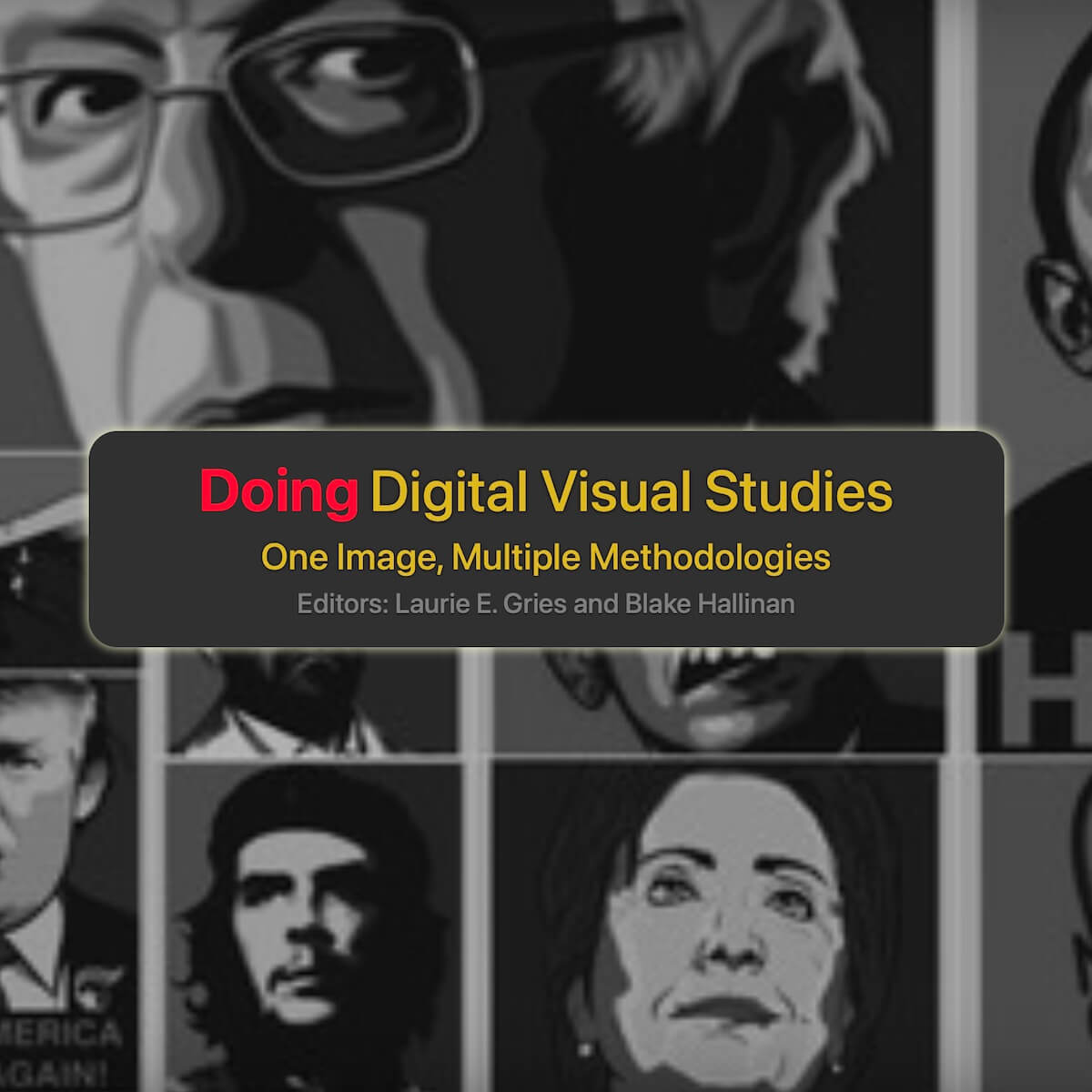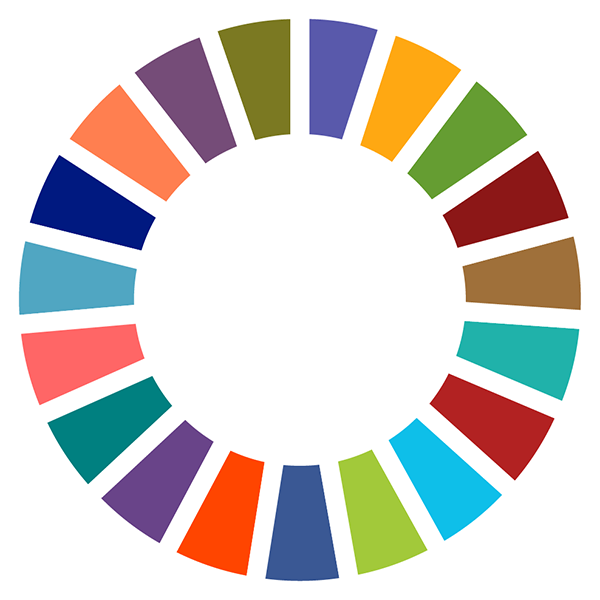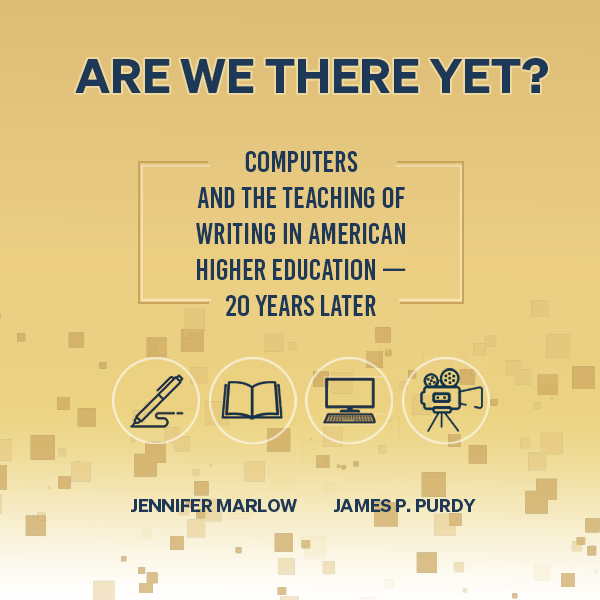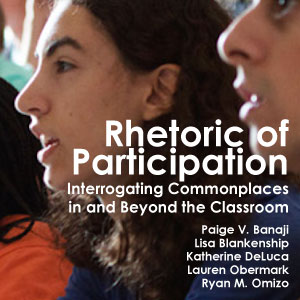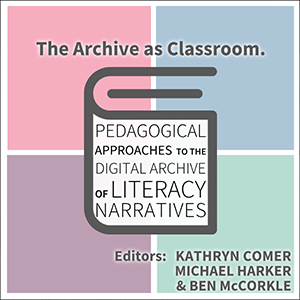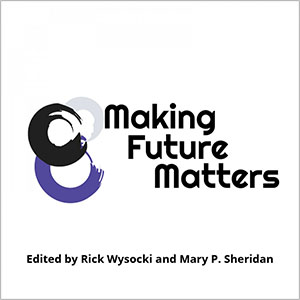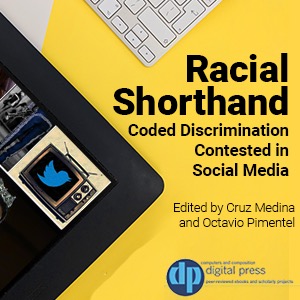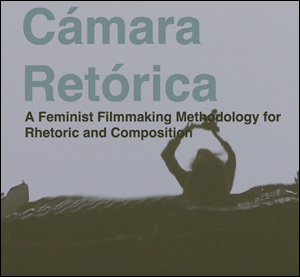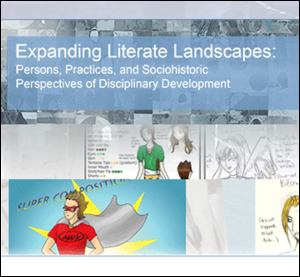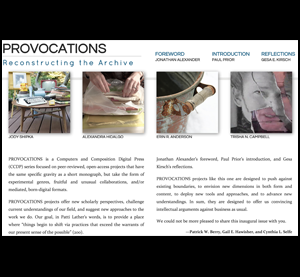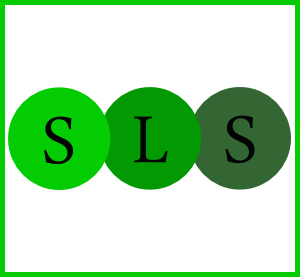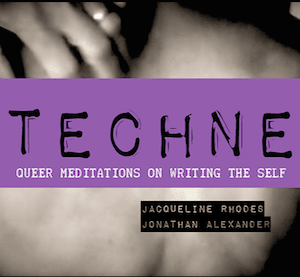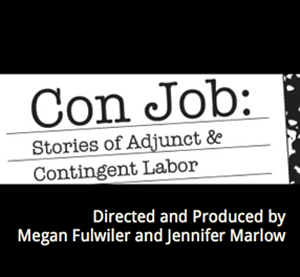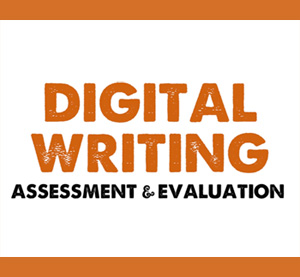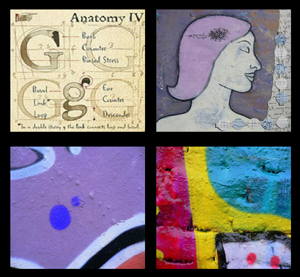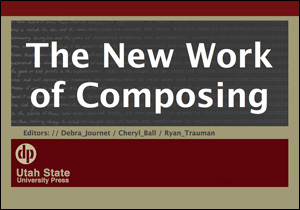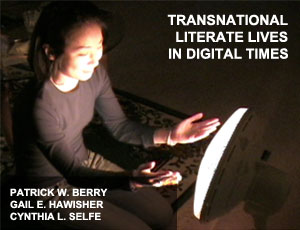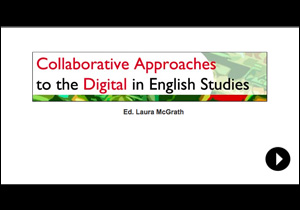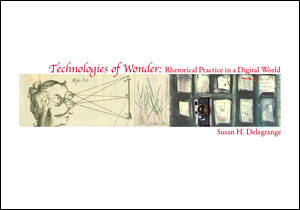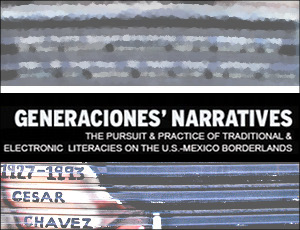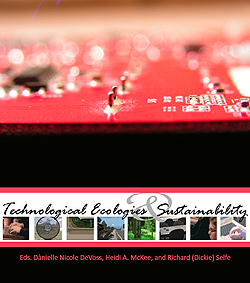Visualizing Captions and Subtitles: The Embodiment of Accessible Multimodal Communication
Janine Butler
Read the book: https://www.ccdigitalpress.org/book/visualizing-captions
In Visualizing Captions and Subtitles: The Embodiment of Accessible Multimodal Communication, Janine Butler visualizes captions and subtitles as instruments of connection that embody how we all communicate with each other through multiple modes and languages, including bodies, voices, and signs.
Publication date: February 2026
Composing with AI
Nupoor Ranade and Douglas Eyman
Read the book: https://ccdigitalpress.org/book/composing-with-ai
Composing with AI provides research about the rise of generative AI in composition studies, focusing on histories, policies, reports of classroom and student use, multimodal composing and teaching AI literacies.
Publication date: December 2025
Living Digital Media: Rhetorical-affective practices in circulation
Rich Shivener
Read the book: https://www.ccdigitalpress.org/book/ldm
Living Digital Media presents a compelling exploration of the intricate relationships between creators and their digital media productions. It emphasizes that creators are living digital media, meaning they experience a swell of emotions, from love to frustration, as they shape their creations.
Publication date: October 2024
Doing Digital Visual Studies: One Image, Multiple Methodologies
Laurie E. Gries and Blake Hallinan
Read the book: https://ccdigitalpress.org/book/ddvs/
Doing Digital Visual Studies: One Image, Multiple Methodologies is a digital book collection that explores new visual research approaches afforded by engagement with emergent digital technologies and novel media practices.
Publication date: September 2022
Radiant Figures: Visual Rhetorics in Everyday Administrative Contexts
Rachel Gramer, Logan Bearden, and Derek Mueller (eds.)
Read the book: https://ccdigitalpress.org/book/radiant-figures/
Radiant Figures: Visual Rhetorics in Everyday Administrative Contexts presents an approach to writing program administration that understands, accounts for, and embraces the rhetorical potential in the creation and circulation of everyday visual artifacts.
Publication date: September 2021
Are We There Yet? Computers and the Teaching of Writing in American Higher Education–Twenty Years Later
Jennifer Marlow and James P. Purdy
Read the book: https://ccdigitalpress.org/book/arewethereyet/
Are We There Yet? Computers and the Teaching of Writing in American Higher Education—Twenty Years Later celebrates the landmark text Computers and the Teaching of Writing in American Higher Education, 1979–1994: A History by Gail E. Hawisher, Cynthia L. Selfe, Paul LeBlanc, and Charles Moran. Are We There Yet? continues this history of computers and writing from 1995 to 2015.
Publication date: May 2021
Transfer across Media: Using Digital Video in the Teaching of Writing
Crystal VanKooten
Read the book: https://ccdigitalpress.org/book/transfer-across-media
Transfer across Media: Using Digital Video in the Teaching of Writing presents digital composition as one pathway toward a better understanding of the transfer of writing knowledge. Through an in-depth study of the video composing experiences of eighteen students, the book illustrates how video provides useful opportunities for transfer across media through multimodal production.
Publication date: June 2020
The Rhetoric of Participation: Interrogating Commonplaces In and Beyond the Classroom
Paige V. Banaji, Lisa Blankenship, Katherine DeLuca, Lauren Obermark, and Ryan Omizo (eds.)
Read the book: https://ccdigitalpress.org/book/rhetoric-of-participation/
The Rhetoric of Participation: Interrogating Commonplaces In and Beyond the Classroom, memorializes and extends the research and legacy of Dr. Genevieve Critel. Critel’s research—and her legacy as a scholar, educator, and colleague—form the foundations for this collection. This collection presents the perspectives of twenty scholars and educators in the fields of rhetoric and composition, all of whom engage with the question, what does it mean to participate?
Publication date: March 2019
The Archive as Classroom: Pedagogical Approaches to the Digital Archive of Literacy Narratives
Kathryn Comer, Michael Harker, and Ben McCorkle (eds.)
Read the book: https://ccdigitalpress.org/book/archive-as-classroom/
Honorable Mention for the 2019 Computers and Composition Distinguished Book Award
Since its public launch in 2008, the Digital Archive of Literacy Narratives (DALN) has collected approximately 7500 unique contributions of people’s literacy experiences from across the globe and from a variety of backgrounds. The Archive as Classroom: Pedagogical Approaches to the Digital Archive of Literacy Narratives showcases the variety of innovative ways educators have used this resource in classroom practice.
Publication date: January 2019
Soundwriting Pedagogies
Courtney S. Danforth, Kyle D. Stedman, and Michael J. Faris (eds.)
Read the book: https://ccdigitalpress.org/book/soundwriting/
Soundwriting Pedagogies argues that sound is an undervalued mode of writing instruction. It offers practical strategies, creative applications, insightful theories, soundings out, and lots of examples to encourage the use and value of soundwriting in composition, writing, rhetoric, and communication classrooms. Throughout this collection, contributors draw on the affordances of sound to theorize and share practices, so that they (and readers) can make sense in ways that might not work in traditional, alphabetic written prose. Crank it up.
Publication date: August 2018
Making Future Matters
Rick Wysocki and Mary P. Sheridan (eds.)
Read the book: https://ccdigitalpress.org/book/makingfuturematters/
Making Future Matters explores the consequentiality of our scholarly activity through examples that both shed light on and enact complex possibilities of mattering.
Publication date: August 2018
Racial Shorthand: Coded Discrimination Contested in Social Media
Cruz Medina and Octavio Pimentel (eds.)
Read the book: https://ccdigitalpress.org/book/shorthand
Racial Shorthand disrupts the dominant shorthand by demonstrating how communities of color produce multimodal projects and leverage the affordances of social media in ways that extend the rhetorical traditions and literacy practices of these communities.
Publication date: July 2018
Cámara Retórica: A Feminist Filmmaking Methodology for Rhetoric and Composition
Alexandra Hidalgo
Read the book: https://ccdigitalpress.org/book/camara
Winner of the 2017 Computers and Composition Distinguished Book Award
Cámara Retórica: A Feminist Filmmaking Methodology for Rhetoric and Composition is a video book comprised of six video-essay chapters that connect film and video production, feminist filmmaking, and Rhetoric and Composition. Drawing from interviews conducted with ten faculty and graduate students in the field who produce and teach the production of moving images, as well as original footage and clips created by rhetoricians and filmmakers, Cámara Retórica weaves a visual and aural tapestry that performs the kind of feminist, moving-image scholarship it argues can be transformative for Rhetoric and Composition.
Publication date: January 2017
Expanding Literate Landscapes: Persons, Practices, and Sociohistoric Perspectives of Disciplinary Development
Kevin Roozen and Joe Erickson
Read the book: https://ccdigitalpress.org/book/expanding
Challenging narrow, institutionally-bounded accounts of the relations among writing, the social, and learning, Expanding Literate Landscapes presents five longitudinal case studies of writers to argue for a more dispersed, complexly mediated and heterogeneously situated understanding of trajectories of identity, practice, and literate development.
Publication date: November 2016
Provocations: Reconstructing the Archive
Patrick W. Berry, Gail E. Hawisher, & Cynthia L. Selfe, eds., featuring the work of Erin R. Anderson, Trisha N. Campbell, Alexandra Hidalgo, and Jody Shipka
Read the book: https://ccdigitalpress.org//book/reconstructingthearchive
PROVOCATIONS is a Computers and Composition Digital Press (CCDP) series focused on peer-reviewed, open-access projects that have the same specific gravity as a short monograph, but take the form of experimental genres, fruitful and unusual collaborations, and/or mediated, born-digital formats. PROVOCATIONS projects offer new scholarly perspectives, challenge current understandings of our field, and suggest new approaches to the work we do.
Publication date: March 2016
Sustainable Learning Spaces: Design, Infrastructure, and Technology
Russell Carpenter, Richard Selfe, Shawn Apostel, and Kristi Apostel (eds.)
Read the book: https://ccdigitalpress.org/book/sustainable
Sustainable Learning Spaces features chapters that tell the stories of how learning spaces embrace sustainability as they move from vision to reality (e.g., sustainable construction, finances, pedagogies, staffing, and technology lifecycles). The collection examines how newer and older centers anticipate and reinvent themselves to meet the challenges of new technology and the pedagogical needs of learners and instructors, as well as how people are addressing and adapting to the environmental challenges of e-waste that these centers inevitably create.
Publication date: November 2015
Techne: Queer Meditations on Writing the Self
Jacqueline Rhodes and Jonathan Alexander
Read the book: https://ccdigitalpress.org/book/techne
Winner of the 2015 CCCC Lavender Rhetorics Award for Excellence in Queer Scholarship
Techne: Queer Meditations on Writing the Self is a book-length multimodal exploration of technologies, subjectivities, and affects. Blending phenomenology and auto-ethnography with queer theories, we delve into the multiple layerings of text, image, and technology as sites from which to perform/write/read ourselves in the digital age. Through image, text, video, and sound, Techne offers a multiplicitous and changing experience of reading and viewing to probe the often contradictory interplay between digital and traditional writing technologies and the author/ed self.
Publication date: September 2015
Strategic Discourse: The Politics of (New) Literacy Crises
Ed. Lynn C. Lewis
Read the book: https://ccdigitalpress.org/book/strategic
John Trimbur's much-cited 1991 essay, "Literacy and the Discourse of Crisis," persuasively argues for a view of literacy crisis discourse as "always strategic," and demonstrates the ways in which it has reified "the meritocratic educational order" (285-286). This project considers Trimbur's argument close to 25 years later, examining twenty-first century literacy crisis discourses immersed inextricably in a technological age. The notion of literacy crisis is a popular trope in the field of composition, rhetoric and literacy studies. Scholars such as Bronwyn T. Williams, Michele Knobel, Colin Lankshear, James Paul Gee, Cynthia L. Selfe and Gail Hawisher among many others have developed innovative heuristics in order to understand the nature of literacy learning in a digital age and enrich readers' understanding of the epistemologies underlying new literacy practices. However, this innovative book project considers the ways in which literacy crisis discourses have reinvented themselves in the twenty-first century through a richly textured view of these varied discourses.
Publication date: March 2015
Con Job: Stories of Adjunct and Contingent Labor
Directed and Produced by Megan Fulwiler and Jennifer Marlow
Read the book: https://ccdigitalpress.org/book/conjob
Winner of the 2014 Computers and Composition Michelle Kendrick Outstanding Digital Scholarship Award
Con Job: Stories of Adjunct and Contingent Labor describes and makes visible the pedagogical, economic, and ethical costs of higher education’s growing reliance on adjunct and contingent faculty. Armed with a borrowed video camera, Megan Fulwiler and Jennifer Marlow, two teachers of composition, set out to record the voices of faculty who are often invisible in and marginalized by the institutions where they teach.
Publication date: March 2014
Digital Writing Assessment & Evaluation
Eds. Heidi A. McKee and Dànielle Nicole DeVoss
Read the book: https://ccdigitalpress.org/book/dwae
Writing has changed due to the affordances of digital technologies, and writing assessment has changed as well. As writing programs integrate more digital writing work, students, teachers, and administrators face the rewards and challenges of assessing and evaluating multimodal and networked writing projects. Whether classroom-based or program-level; whether in first-year writing, technical communication, or writing-across-the-curriculum; whether formative or summative; and whether for purposes of placement, grading, self-study, or external reporting, digital writing complicates the processes and practices of assessment.
Publication date: September 2013
Stories That Speak to Us
Eds. H. Lewis Ulman, Scott Lloyd DeWitt, and Cynthia L. Selfe
Read the book: https://ccdigitalpress.org/book/stories
Stories That Speak to Us—a digital collection of scholarly, curated exhibits—is designed to investigate literacy narratives from a number of perspectives: to explore why they are important, what information they carry about reading and composing, why they might be valuable, not only for scholars and teachers, but also for librarians, community literacy workers, individual citizens and groups of people. As the editors and authors collectively suggest, literacy narratives are powerfully rhetorical linguistic accounts through which people fashion their lives; make sense of their world, indeed construct the realities in which they live.
Publication date: March 2013
The New Work of Composing
Eds. Debra Journet, Cheryl Ball, and Ryan Trauman
Read the book: https://ccdigitalpress.org//book/nwc
Winner of the 2012 Computers and Composition Distinguished Book Award
The New Work of Composing is a book-length collection whose purpose is to examine the complex and semiotically rich challenges and opportunities posed by new modes of composing, new forms of rhetoric, new concepts of texts and textuality, and new ways of making meaning. In particular, this book explores how digital media are shaping our understanding of scholarly projects within composition studies.
Publication date: August 2012
Transnational Literate Lives in Digital Times
Patrick W. Berry, Gail E. Hawisher, and Cynthia L. Selfe
Read the book: https://ccdigitalpress.org/book/transnational
Winner of the 2013 CCCC Advancement of Knowledge Award
Winner of the 2013 CCCC Research Impact Award
Transnational Literate Lives in Digital Times is a book-length project designed to document how people outside and within the United States take up digital literacies and fold them into the fabric of their daily lives. This research contributes to our knowledge of the impact of digital media on literate practices and also provides a basis for developing approaches for studying and teaching successful practices.
Publication date: February 2012
Collaborative Approaches to the Digital in English Studies
Ed. Laura McGrath
Read the book: https://ccdigitalpress.org/book/cad
Collaborative Approaches to the Digital in English Studies joins the ongoing conversation about collaborative work in the humanities. Instead of focusing exclusively on the digital humanities or emphasizing only the large-scale computational analysis or archival projects typical of that field of study, the collection focuses on a variety of projects led by or involving English studies professionals in particular.
Publication date: December 2011
Technologies of Wonder
Susan H. Delagrange
Read the book: https://ccdigitalpress.org/book/wonder
Winner of the 2011 Computers and Composition Distinguished Book Award
Winner of the 2012 Winifred Bryan Horner Outstanding Book Award from the Coalition of Women Scholars in the History of Rhetoric
Winner of the 2013 CCCC Outstanding Book Award
Technologies of Wonder: Rhetorical Practice in a Digital World considers the theoretical and pedagogical implications of designing academic scholarship in interactive digital media, and proposes renewed emphasis on embodied visual rhetoric and on the canon of arrangement as an active visual practice. This project uses the concept of the Wunderkammer to argue for techné and wonder as guiding principles for a revitalized visual canon of arrangement and as new models of invention and intervention in multimodal scholarly production.
Publication date: November 2011
Generaciones' Narratives
John Scenters‐Zapico
Read the book: https://ccdigitalpress.org//book/generaciones
Teachers, students, and administrators interested in traditional literacy, electronic literacy, bilingualism, Latino/a studies, and media literacies showcasing the rise of technological literacies across generations and within the marginalized population on the U.S.-Mexico border will better understand literacy experiences in niche locations. From over a hundred surveys and interviews and a final focus on over 40 participants, Generaciones’ Narratives reveals how terms like sponsor and gateway become nuanced in significant ways, and how both refined and new terminology useful for niche studies comes into play.
Publication date: March 2010
Technological Ecologies & Sustainability
Eds. Dànielle Nicole DeVoss, Heidi A. McKee, and Richard (Dickie) Selfe
Read the book: https://ccdigitalpress.org//book/tes
Together, computerized writing environments (e.g., physical spaces, hardware, software, and networks) and the humans who use and support such technologies comprise complex ecologies of interaction. As with any ecology, a human-computer techno-ecological system needs to be planned, fostered, designed, sustained, and assessed to create a vibrant culture of support at the individual, programmatic, institutional, and even national and international level. Local and larger infrastructures of composing are critical to digital writing practices and processes. In academia, specifically, all writing is increasingly computer-mediated; all writing is digital.
Publication date: May 2009



